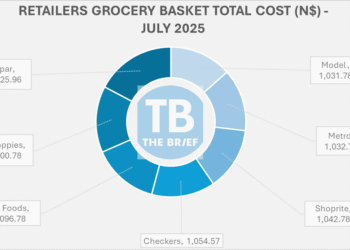
A category of work that is not stable, safe or adequately protected may be characterised as hazardous employment, also called precarious working.
It is characterised by a range of work arrangements that, in particular, allow workers to be at risk for exploitation, poor pay, restricted access to benefits (such as housing allowance, pension fund and medical aid) and an uncertain income.
It is alarming that job opportunities in the mining sector are becoming more unstable because hiring decisions may be influenced by profit- and cost-cutting strategies.
These choices, which were made to create jobs and promote national development, may ultimately lead to an ongoing rise in precarious employment. Consequently, there will be adverse effects, including:
- Part-time/temporary employment:Workers are frequently hired for short-term assignments or temporary contracts without any guarantee of continued employment after completing a particular period, task or job, which leads to erratic schedules and fluctuating pay.
- Independent contracting:Â Some people are classified as independent contractors or freelancers, which means they are not entitled to the same benefits and protections as regular employees as defined in the Labour Act no. 11 of 2007.
- Insufficient income:resulting in extreme challenges or even impossibilities in covering essential living costs or supporting a family, ultimately causing financial insecurity.
- Limited or non-existent benefits:Â affected workers might not be eligible for benefits like housing allowance, paid leave, retirement savings, or medical assistance.
- Inadequate representation from labour unions and lack of job security:Precarious workers face the possibility of unexpected job termination without sufficient advance notice or fair compensation due to the temporary nature of their employment. They might also encounter obstacles when it comes to organising unions or engaging in collective bargaining, thereby making it difficult to advocate for improved working conditions effectively. Advocating for genuine negotiation can also result in apprehension about being victimised or discriminated against.
Several workers are compelled to engage in such precarious work because they have no other options available to them. This has significant consequences for society and the economy, leading to a rise in income inequality, limited availability of social support, and the potential for adverse effects on individuals’ physical and mental well-being caused by stress and uncertainty.
Tackling the issue of precarious job conditions necessitates a holistic strategy encompassing intervention policies, reforms in the labour market, and endeavours to reinforce workers’ rights and safeguards. The government needs to review and take the lead on it, and involve all parties (public and juristic persons) to collectively commit to addressing and avoiding precarious work for example in the Mining Industry.
This will ensure that the long overdue amendments to the labour law will effectively cater to the present requirements of the working class, supported by concrete illustrations of the existing situation with solutions, as well as in the foreseeable future.
It is essential for the Namibian society to take the initiative and actively support the idea of transferring the reporting line of the Office of the Labour Commissioner and Employment Equity Commissioner to the Ministry of Justice.
This will allow for justice driven principles to follow once all internal procedures have been completed, the concerns or disputes of the working-class citizens or employer can be handled directly through a specific division of the Ministry of Justice. This would be more effective and provide less delays or possible conflict of interest to the reporting ministry when treating the concerns.
People have been informed about previous incidents where cases were delayed, claims of pro-capitalist policies, alleged employer directives that go against the workers’ wishes, expensive legal procedures that most workers cannot afford, conflicts of interest, and alleged biases within the Ministry of Labour, Industrial Relations, and Employment Creation when it comes to addressing workers’ concerns, particularly when they are against employers.
Once all internal procedures have been exhausted between the employer or employer’s organisation and the employee or employee’s representative, a department, or Section within the Ministry of Justice must assume responsibility for addressing any unresolved disputes of rights or interests.
This measure will continue to guarantee the prevention of misconduct or delict to any party involved and, in cases where it is claimed, ensure that appropriate corrective actions are taken. Thus, any applicant or respondent will be guided by justice principles to address the matter and those in the wrong will receive a just consequence, reflecting the moral and legal implications of their actions.
It becomes challenging and frequently contradictory for one Ministry to handle various responsibilities, such as addressing labour disputes, managing industrial relations, and promoting job creation simultaneously. To continuously enhance the well-being of the Namibian working class and the nation as a whole, it is crucial to implement a law that places the Office of the Labour Commissioner and Employment Equity Commissioner under the Ministry of Justice as an action in one step towards continuous improvement.
 This will assist in further ensuring economic emancipation and serve as a symbol of hope to guarantee that Namibia will not revert to a similar or improvised direct or indirect system similar to that of the past “Contract Labour Systemâ€Â that was exploitative. This will also create a stronger sense of responsibility for both employers and employees to prioritise ethics and maintain a healthier labour relationship that aligns with our motto of ‘Unity, Liberty, and Justice’ which enshrines the key principles embodied in the Namibian Constitution.
Keshiwa Samuel is a labour law student and aspiring practitioner. He worked as a union representative in the mining sector for 13 years.  Reach him at oscar12b@gmail.com or +264 81 348 5835.
Â
Â











